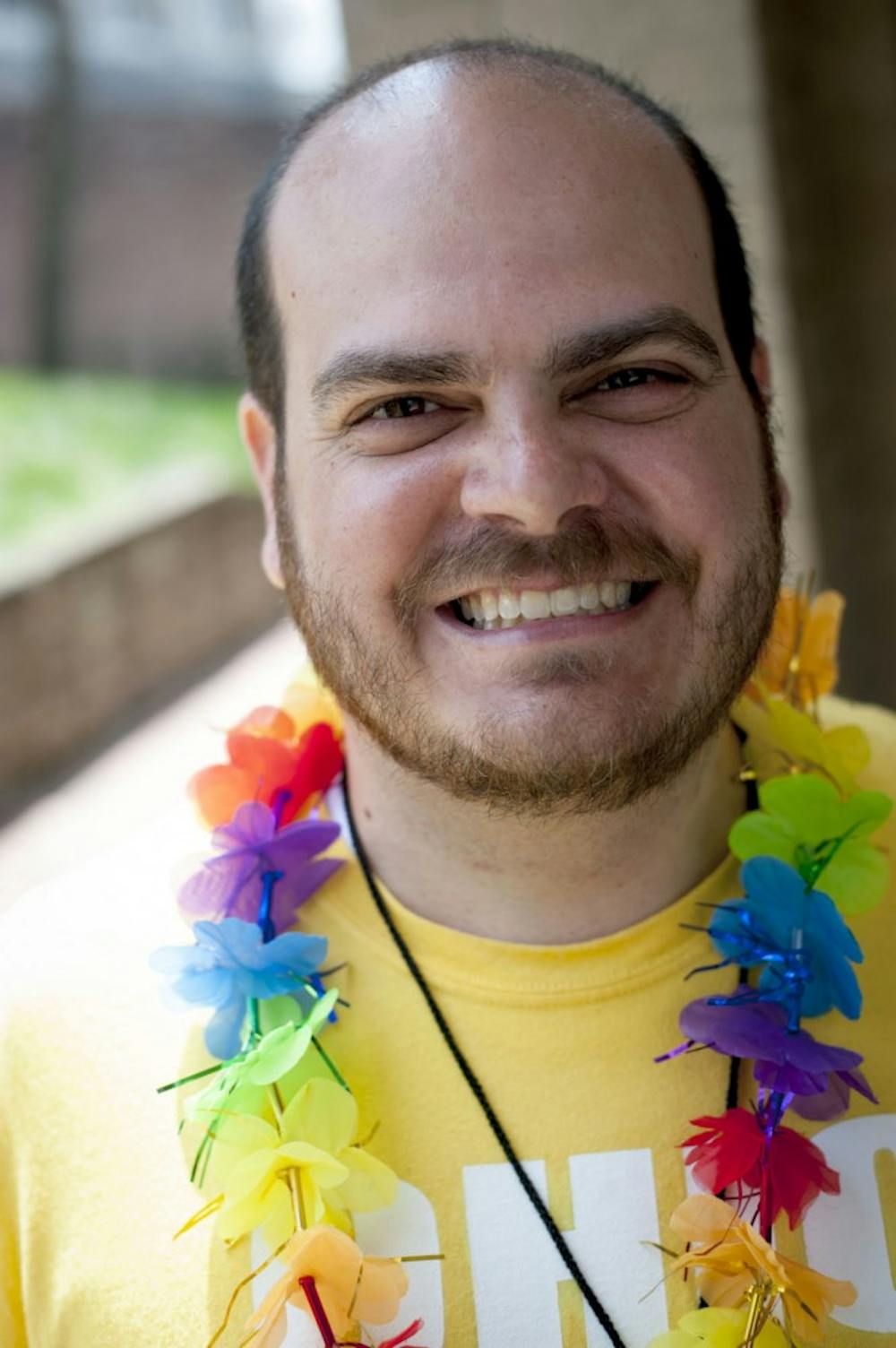Though not everyone in the LGBT community is oppressed in the same way, they all face similar societal problems, writes bautista.
As we continue to roll out and raise awareness about Ohio University’s new preferred name and pronoun policy, many on and off campus are asking questions about pronouns and how best to use them. We’ve also received questions about changing perceptions towards LGBT people. Here are our thoughts.
How do you best address the pronoun question without offending them?
The ideal solution is to always introduce yourself with your name AND pronouns and to always ask the other person’s name AND pronouns. This way, you don’t just single out people you think might “look” transgender, and you publicly show yourself to be a safe person who knows the right questions to ask to be respectful. Respecting name and pronouns is a simple yet powerful way to create safer spaces for all people.
{{tncms-asset app="editorial" id="87f0649a-5006-11e5-8d83-db4ad4a91a2c"}}
If this isn’t always possible, it is best to ask privately in a safer place. Start by saying your own pronouns (ex. “I use he/him/his,” or “my pronouns are she/her/hers”), and ask what their pronouns are. Follow up by asking which pronouns you should use in which contexts, such as in class versus with parents versus going out with friends. People are at different points of their journey of living and expressing who they are; because of this, an individual may be comfortable with specific names and pronouns being used in some spaces and not in others. Take your cues from them and be mindful of not accidentally outing a person.
If you slip up and mistakenly mispronoun someone, quickly apologize, repeat the phrase or sentence with the correct pronoun and move on. Apologizing profusely or making excuses only draws attention to the injury and is more about your feelings than the individual. We are mindful that gender pronouns can be confusing, however, keep in mind that it is not about your intent but your impact. Recognize and apologize when mistakes happen and commit yourself learning, relearning and unlearning. We challenge you to call out people who mispronoun others AND be willing to be called out yourself.
Do people who identify as LGBT instantly feel threatened by society or by what society thinks about LGBT people?
{{tncms-asset app="editorial" id="10a1bb1e-461a-11e5-92a3-db56676a5d4f"}}
Most, if not all, LGBT people worry about how others across society will react if they know about their identity or identities, whether because they came out or because they are read as queer or transgender based purely on appearance. Depending on context and individuals, this can range from worry about social embarrassment to fear of verbal harassment or physical violence. Not everyone in the LGBT community is equally oppressed or oppressed in the same ways, and some groups face much more violence, discrimination and homelessness. Trans women of color, disproportionately black and latina trans women, face the highest rates of murder of any demographic (LGBT or not) nationally. Whereas these women may be extremely alert and feel threatened by many public spaces and even law enforcement, white cisgender gay men who pass as heterosexual and masculine do not have to stay on the same alert in most cases. But every LGBT person has to deal with the realities of homophobia, biphobia, transphobia and/or sexism in addition to other oppressed parts of their identity (gender, race, disability etc.)
delfin bautista is the Director of the LGBT Center at Ohio University. Do you have a question relating to the LGBT community? Email them to lgbt@ohio.edu or oulgbtcenter@gmail.com, tweet @oulgbtcenter with #qaqueer or post/send a message to the center’s Facebook page, oulgbtcenter. Individuals who submit questions will appear anonymously in our responses.






